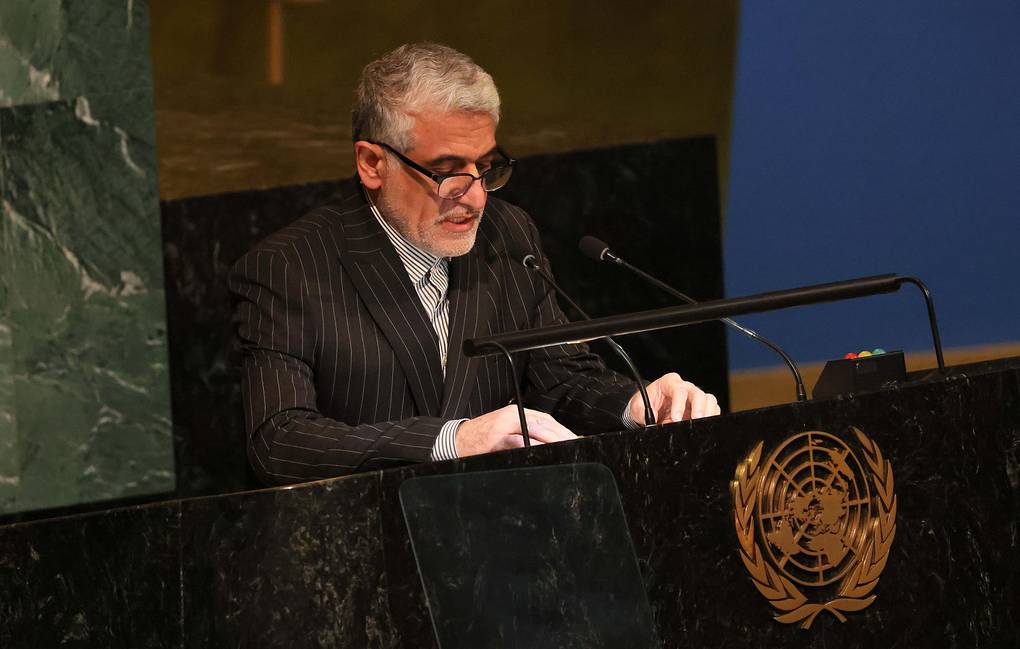Iran’s permanent representative to the United Nations has strongly condemned the “baseless” accusations leveled at Tehran by a British minister concerning the West Asia crisis, saying the UK’s 1917 Balfour Declaration caused the suffering of the Palestinian nation.
In letters sent to the UN chief and the Security Council’s president on Tuesday, Iravani firmly rejected “baseless” anti-Iran claims by British Minister of State for the Middle East Tariq Ahmad at the United Nations Security Council’s Wednesday meeting on “The situation in the Middle East, including the Palestinian Question”.
The Iranian envoy said that during the meeting, the UK minister overlooked “his own country’s responsibility in the current situation in the Middle East and the UK’s destabilizing policies, attempted to shift blame onto the Islamic Republic of Iran.”
“Undoubtedly, the United Kingdom has certainly played a pivotal role in the prolonged suffering and distress endured by the Palestinian people. The ominous roots of this plight can be traced back to the Balfour Declaration, signaling the commencement of nearly a century of hardship for the Palestinians,” he stated, referring to the document that set the stage for the occupation of Palestine.
Iravani also noted that the UK’s “consistent and unwavering support for Israeli atrocities and genocidal aggression against the Palestinian people and regional countries markedly diminishes its moral authority to license judgment on the intentions and policies of others”.
In his address to the Security Council, Ahmad alleged that Iran “poses an unacceptable threat to the region through its destabilizing activity and long-term support for its proxies and partners”.
The Balfour Declaration came in the form of a letter from Britain’s then-foreign secretary, Arthur Balfour, addressed to Lionel Walter Rothschild, a figurehead of the British Jewish community. It was published on November 2, 1917.
The declaration was made during World War I (1914-1918), and was included in the terms of the British Mandate for Palestine after the dissolution of the Ottoman Empire.
It is widely seen as the precursor to the 1948 Palestinian Nakba, when Zionist armed paramilitary groups, who were trained and created to fight side by side with the British in World War II, forcibly expelled more than 750,000 Palestinians from their homeland.
